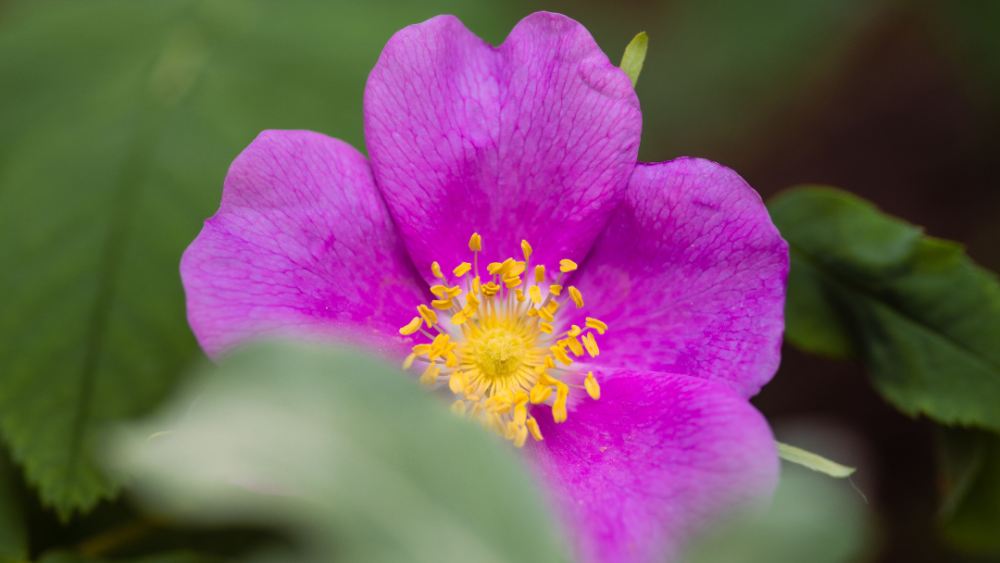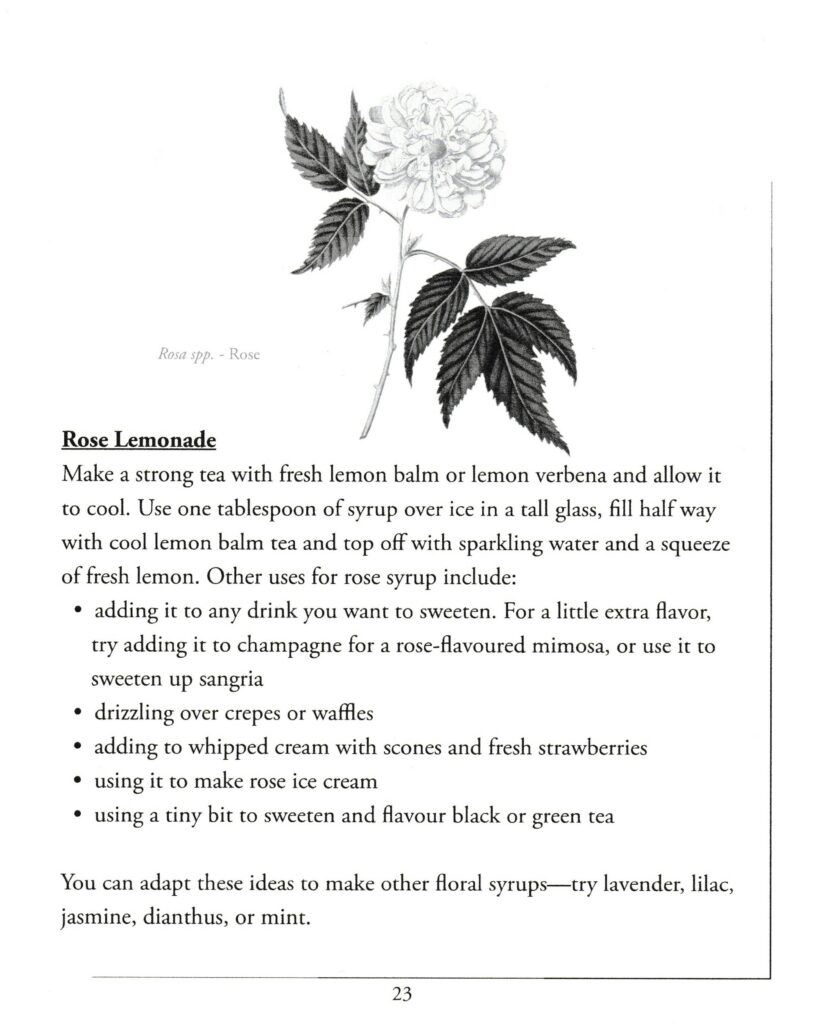Rose Medicine
-By Alina Baker, RHT, R.Ac
Summer in the Comox valley is welcomed by the sweet smell of Rosa nutkana (Nootka rose). Blossoming late May to early July, its unmistakable pink flowers and delicate aroma greet you nearly everywhere you go. Roses are often celebrated for their beauty and fragrance, but their medicinal properties are equally noteworthy. Used for centuries in traditional medicine, both the flower petals and the fruit (or more technically, the pseudocarp) of the rose plant offer a range of health benefits.
Petals:
Rose petals possess anti-inflammatory, antibacterial, and astringent properties. They are often used to:
Soothe Skin Irritations: The gentle astringent quality of rose petals makes them valuable for healing and soothing the skin. Rose extracts are commonly found in skincare products for their ability to reduce redness and inflammation, balance the skin’s pH and tighten pores. Even the most sensitive skin-types can usually tolerate it. Rose water in particular can help to soothe burns, rashes, rosacea, and acne. As an eye compress, rose water can soothe irritation and reduce redness, making it a natural remedy for tired or strained eyes.
Improve Digestion: The ability of tannins in rose petals to gently tighten and tone tissues can also help repair a compromised gastrointestinal lining (leaky gut) while its antioxidants may help resolve inflammation in the gut. This combined action can be useful in cases of IBS, gastritis, colitis, and diarrhea.
Relieve Stress and Anxiety: The scent of roses has been shown to have a calming effect on the mind, reducing stress and promoting relaxation.
Rose Hips:
Rose hips, the fruit of the rose plant, are rich in vitamins and antioxidants. They are an incredible source of vitamin C, an essential antioxidant and key factor in immune function. Unlike pure ascorbic acid found in many supplements, the naturally-occuring vitamin C in rose hips is stable, meaning it can neutralize free radicals without becoming a free radical itself. Consuming rose hips either as tea or extract may help to fend off colds and flus and keep the immune system functioning optimally.
Enhancing Skin Health: The antioxidants in rose hips, such as vitamin A and E, contribute to skin health by promoting cell regeneration and reducing the appearance of scars and wrinkles. Rose hip oil is widely used in skincare for its anti-aging properties
Reducing Inflammation: Rose hips contain polyphenols and anthocyanins, which have anti-inflammatory effects. This makes them beneficial for individuals suffering from inflammatory conditions.
Psycho-emotional Aspects of Rose
Most commonly associated with love, the rose has long held special significance to us. As an energetic medicine, Rose is considered a potent remedy for the emotional heart – allowing us to remain open, receptive, and embodied and lending us the courage to be vulnerable, even when facing the threat of emotional pain. For this reason, it is an excellent tonic for facilitating connection and communication, helping us to empathize with one another while remaining in our own center of being. Rose also reminds us that true empathy and connection is not possible without boundaries. Just as the thorns on the rose protect it from being eaten or attacked, so too do healthy emotional boundaries protect us from being taken advantage of or giving beyond our own capacities. As such, the energetic medicine of rose can benefit those who have a difficult time setting boundaries and are prone to people-pleasing tendencies.
In as much as we associate it with love, joy, and beauty, Rose is also a grief medicine. As Khalil Gilbran so eloquently put it:
“Joy and Sorrow are inseparable. Together they come, and when one sits alone with you at your board, remember that the other is asleep upon your bed”
Rose flowers are said to soften the sharp edges of grief, soothing and comforting us in times of sorrow. During these times, it lends us both the strength to remain open and present in our grieving and the softness to prevent bitterness, resentment, or anger from gaining a foothold in our hearts. Its astringent quality is said to energetically “astringe the spirit”, helping us to remain psychologically in-tact while grief moves through us as well as to pull ourselves up and out of it when it is time to let go.
Using Rose Remedies:
Rose Petal Tea: Rose petals can be brewed dried or fresh to make a soothing tea that can calm the mind and aid digestion. Note: rose petals mold easily; be sure to ventilate thoroughly while drying.
Rose Petal Tincture: Pour 40% alcohol over dry or fresh rose petals (as many as you can fit in the jar). Store in a cool place and shake vigorously every day for 3 weeks. Press the alcohol and bottle in a dark amber bottle. Take 2-3 drops daily as energetic medicine or 2-3ml twice daily to treat gastrointestinal issues (note: you should always consult a healthcare professional before taking any herbal medicine).
Rose Water Spray: Add 2 cups of rose petals and 1L of water to a double boiler. Place the lid upsidedown on the pot and place a few ice cubes on the lid. Bring to a boil, then reduce to a simmer for 30-45 minutes. Continue adding icecubes as they melt. Once the petals have lost their colour, you’re done. Allow to cool and store in a dark coloured spray bottle in the fridge for up to 6 months. Use rose water as a facial toner or mist to hydrate and refresh your skin throughout the day.
Rose Hip Infused oil: Infuse into a carrier oil such as almond, jojoba, or olive oil. Warm the oil over a double burner and allow to infuse for 6-8 hours being careful not to overheat.
Rose Essential Oil Aromatherapy: Add a few drops of rose oil to a diffuser to create a calming atmosphere that helps to alleviate stress and anxiety.


